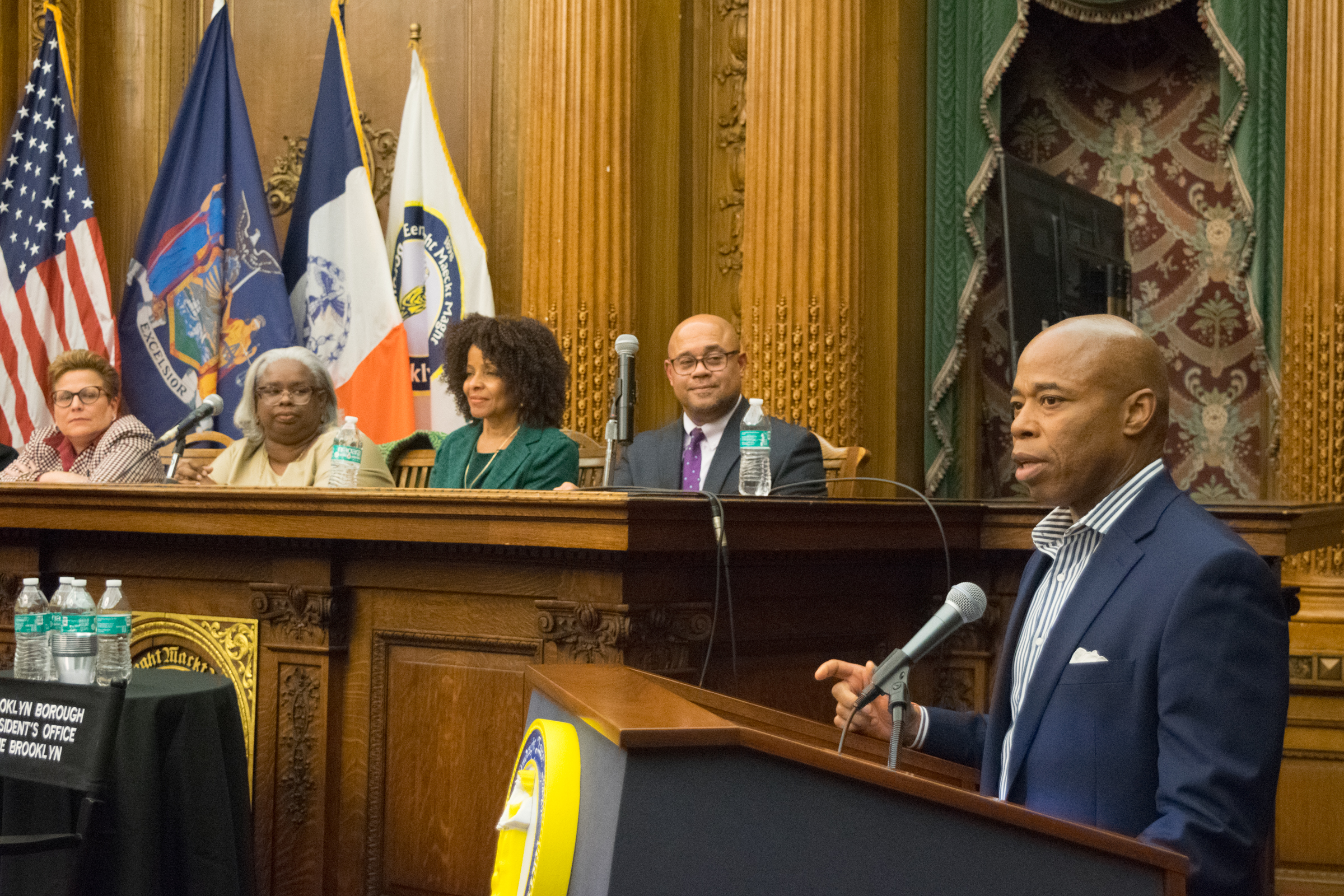Borough President Eric Adams invites Brooklyn to meet the judges

Most people never get a chance to meet judges unless they appear before them in court, but Borough President Eric Adams wanted to give Brooklynites an opportunity to meet them and ask them questions in a more relaxed atmosphere.
That’s why he hosted a “Meet the Judges” event at Borough Hall on Wednesday night where he invited 10 judges and over 100 members of the local community to come together in a more relaxed atmosphere so that the judges could help demystify the system.
For three hours, 10 judges talked about what they do and how their courts operate, and took questions from anyone who wanted to ask.

Brooklyn Boro
View MoreNew York City’s most populous borough, Brooklyn, is home to nearly 2.6 million residents. If Brooklyn were an independent city it would be the fourth largest city in the United States. While Brooklyn has become the epitome of ‘cool and hip’ in recent years, for those that were born here, raised families here and improved communities over the years, Brooklyn has never been ‘uncool’.